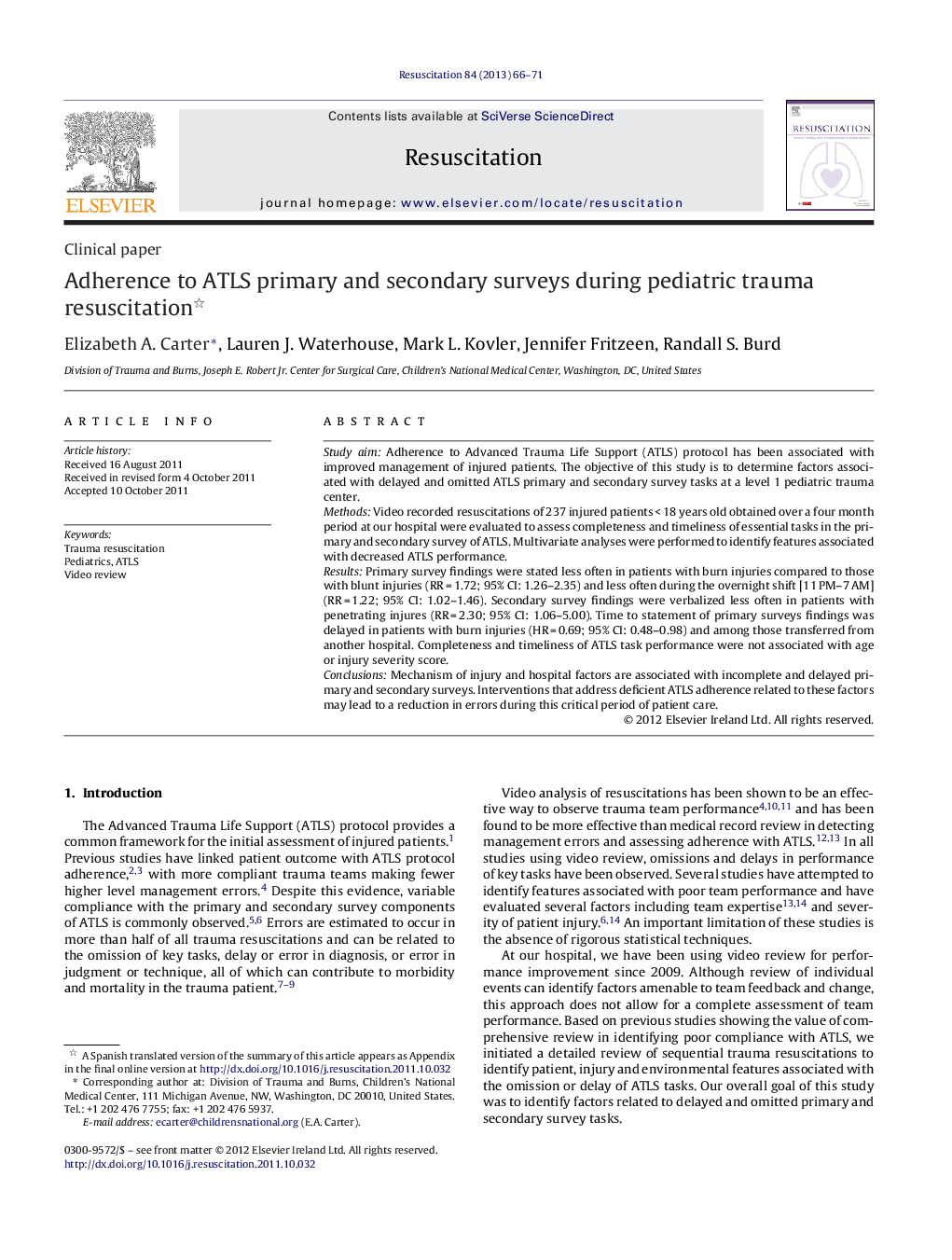| Article ID | Journal | Published Year | Pages | File Type |
|---|---|---|---|---|
| 3008285 | Resuscitation | 2013 | 6 Pages |
Study aimAdherence to Advanced Trauma Life Support (ATLS) protocol has been associated with improved management of injured patients. The objective of this study is to determine factors associated with delayed and omitted ATLS primary and secondary survey tasks at a level 1 pediatric trauma center.MethodsVideo recorded resuscitations of 237 injured patients < 18 years old obtained over a four month period at our hospital were evaluated to assess completeness and timeliness of essential tasks in the primary and secondary survey of ATLS. Multivariate analyses were performed to identify features associated with decreased ATLS performance.ResultsPrimary survey findings were stated less often in patients with burn injuries compared to those with blunt injuries (RR = 1.72; 95% CI: 1.26–2.35) and less often during the overnight shift [11 PM–7 AM] (RR = 1.22; 95% CI: 1.02–1.46). Secondary survey findings were verbalized less often in patients with penetrating injures (RR = 2.30; 95% CI: 1.06–5.00). Time to statement of primary surveys findings was delayed in patients with burn injuries (HR = 0.69; 95% CI: 0.48–0.98) and among those transferred from another hospital. Completeness and timeliness of ATLS task performance were not associated with age or injury severity score.ConclusionsMechanism of injury and hospital factors are associated with incomplete and delayed primary and secondary surveys. Interventions that address deficient ATLS adherence related to these factors may lead to a reduction in errors during this critical period of patient care.
